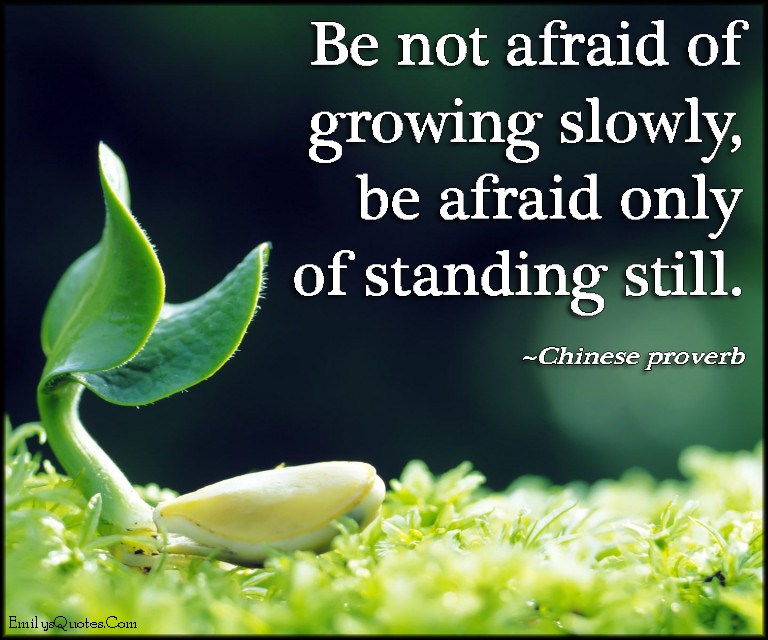No one said building a ministry would be easy. Here are 8 great things you can do to grow your ministry and sustain that growth for the long term.
1. Know Your Audiences
 You probably already know the key to great marketing is having a strictly defined target audience. If you try to appeal to everyone, you miss those who are truly passionate about what you offer. Yet, leaders may also forget how many different audiences they serve. The people who use your services are (usually) not the same people who want to fund your programs. Think carefully about who you want to reach and what message you want to give them, specifically.
You probably already know the key to great marketing is having a strictly defined target audience. If you try to appeal to everyone, you miss those who are truly passionate about what you offer. Yet, leaders may also forget how many different audiences they serve. The people who use your services are (usually) not the same people who want to fund your programs. Think carefully about who you want to reach and what message you want to give them, specifically.
2. Go where your people are, don’t expect them to find you
 Social media—powerful tool that it is—has made us lazy. Too many leaders fall prey to the illusion that they can write a pithy tagline, post it online, and magically find themselves with followers galore. The best leaders know nothing can replace the power of feet on pavement, face-to-face meetings, and firm handshakes to establish real connections. When you know who your audience is, figure out where to find them. Meet them on their turf and prove you are willing to invest the legwork to make your ministry succeed. You’ll earn more trust with handshakes than with tweets.
Social media—powerful tool that it is—has made us lazy. Too many leaders fall prey to the illusion that they can write a pithy tagline, post it online, and magically find themselves with followers galore. The best leaders know nothing can replace the power of feet on pavement, face-to-face meetings, and firm handshakes to establish real connections. When you know who your audience is, figure out where to find them. Meet them on their turf and prove you are willing to invest the legwork to make your ministry succeed. You’ll earn more trust with handshakes than with tweets.
3. Practice telling your story
 No one can tell your story better than you can. Still, not all of us are natural storytellers. Even the best authors have editors who critique every word, demanding rewrites and revisions before copy goes to print. Don’t be afraid to practice your pitch ahead of time. Find the phrases you love—the ones that capture the heart and soul behind your mission—and ditch the ones that distract from your true purpose. Better yet, invite close friends and mentors to listen and provide honest feedback. Chose people who will tell you where you honestly need to improve. If you don’t hear it from people you trust, you’ll hear it from strangers and opportunities will be missed.
No one can tell your story better than you can. Still, not all of us are natural storytellers. Even the best authors have editors who critique every word, demanding rewrites and revisions before copy goes to print. Don’t be afraid to practice your pitch ahead of time. Find the phrases you love—the ones that capture the heart and soul behind your mission—and ditch the ones that distract from your true purpose. Better yet, invite close friends and mentors to listen and provide honest feedback. Chose people who will tell you where you honestly need to improve. If you don’t hear it from people you trust, you’ll hear it from strangers and opportunities will be missed.
4. Believe in yourself
 Confidence is one of the most compelling traits a person can have. If you don’t believe in your message, no one else will either. You would not have made it this far if you didn’t believe in your self and your mission. Remember that spirit of belief which led you where you are today—hold on to it and let it transform your message. The “honeymoon period” of launching your ministry might fade, but never forget the spark that ignited it in the first place!
Confidence is one of the most compelling traits a person can have. If you don’t believe in your message, no one else will either. You would not have made it this far if you didn’t believe in your self and your mission. Remember that spirit of belief which led you where you are today—hold on to it and let it transform your message. The “honeymoon period” of launching your ministry might fade, but never forget the spark that ignited it in the first place!
5. Focus on what you DO do, not what you DON’T do
 As leaders, we are trained to see improvement opportunities. We spend most of our time thinking about where we should go next, what new initiatives we could develop, what unmet needs remain unmet and how we might fill them. Never lose sight of the magnificent things you are already doing. There’s a time and place for sharing your visions for the future, but start with your current successes first. What’s working? What lives have already been changed? What things might flourish with just a little more time and attention instead of settling for status quo?
As leaders, we are trained to see improvement opportunities. We spend most of our time thinking about where we should go next, what new initiatives we could develop, what unmet needs remain unmet and how we might fill them. Never lose sight of the magnificent things you are already doing. There’s a time and place for sharing your visions for the future, but start with your current successes first. What’s working? What lives have already been changed? What things might flourish with just a little more time and attention instead of settling for status quo?

6. Plant…Water…Wait…Repeat
Growth takes time. Always. Even growth spurts have limits—remember those awkward teenage years where your feet were too big for your body and all your muscles were sore from growing too fast? If growth happens too quickly, you’ll feel the growing pains. Be patient. Let nature run its course. Just don’t get lazy. Ask a farmer—growth is slow, but never boring! Keep at it and watch God work a little bit more each day.
7. See People
 I worry we do ourselves disservice with all the technical terms we use for people. “Donors.” “Clients.” “Partners.” “Members.” “Customers.” “Attendees.” Do we still think of these as human beings? These people all have emotions, fears, and insecurities. They are struggling through life’s challenges every day—unhappy marriages, financial troubles, rebellious kids, questions about their identity. Whether you are asking for financial support, selling a product, or offering a service, always remember the person in front of you is a beautiful, vulnerable human, just like you are. I guarantee, it will change the flow of your conversations.
I worry we do ourselves disservice with all the technical terms we use for people. “Donors.” “Clients.” “Partners.” “Members.” “Customers.” “Attendees.” Do we still think of these as human beings? These people all have emotions, fears, and insecurities. They are struggling through life’s challenges every day—unhappy marriages, financial troubles, rebellious kids, questions about their identity. Whether you are asking for financial support, selling a product, or offering a service, always remember the person in front of you is a beautiful, vulnerable human, just like you are. I guarantee, it will change the flow of your conversations.
8. Learn from every failure
Everybody loves a happy ending. But a happy beginning followed by a happy middle leading to a happy end makes a terrible story. Embrace the struggles along the way. They add depth and dimension to your experience and your character. Don’t rush past the hard parts—the rejections, the missed opportunities, the broken promises—take a moment to understand why they happened. Identify what you will do differently next time. And try and try again.




